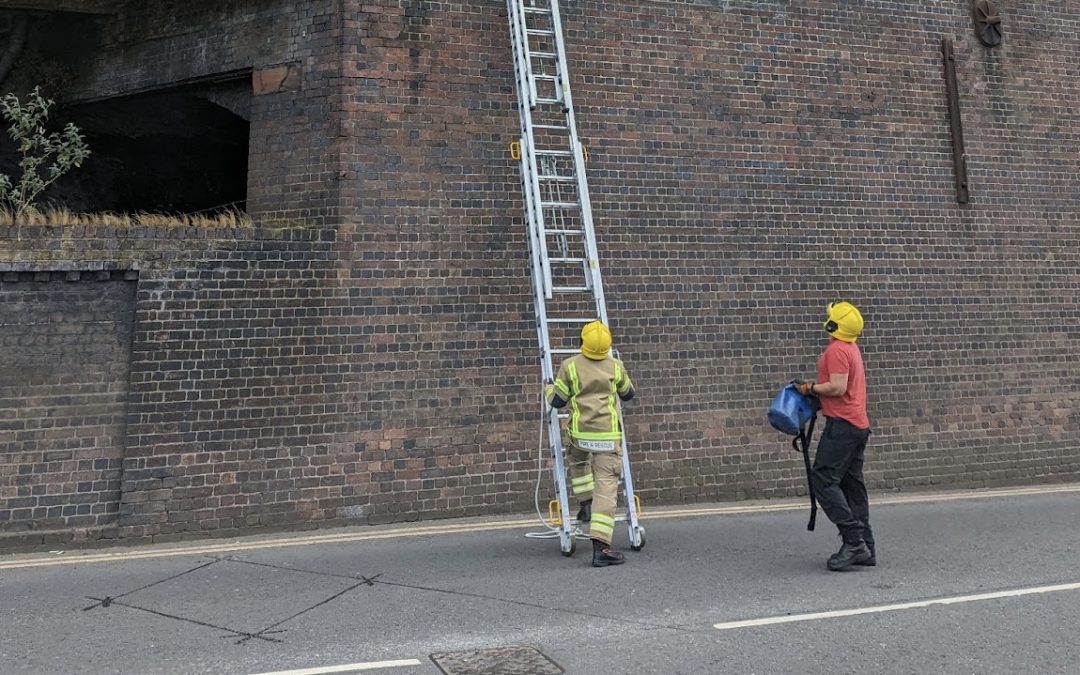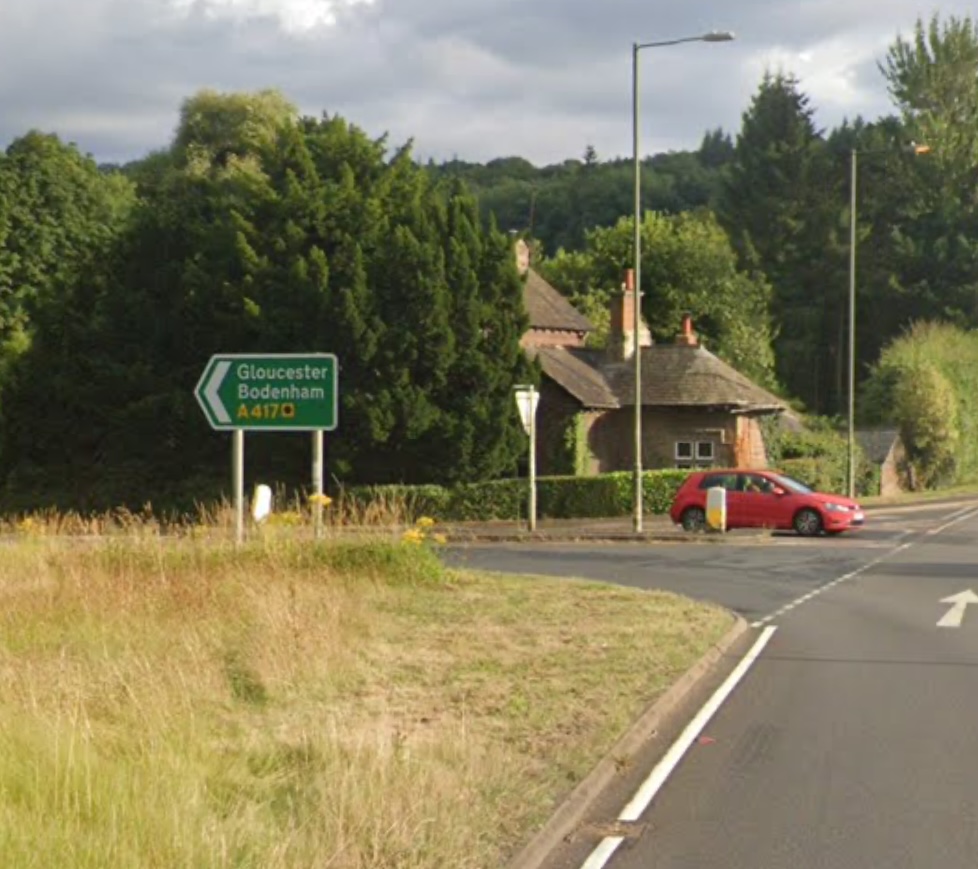The RSPCA teamed up with the fire service to help rescue a gull in Worcester city centre last week.
A young gull had become trapped between a window and an outer mesh cover at the front of a window at a Tolladine Road building.
The bird was stuck at around 35 feet up and spotted by a member of the public on Friday 21 July. The RSPCA were first notified and then the Hereford & Worcester Fire and Rescue Service were subsequently called for assistance.
RSPCA chief inspector Thea Kerrison and inspector Emily Cheeseman attended the location.
“The gull had unfortunately managed to get through the small smashed window from the inside of the building and then had become trapped between the glass and mesh covering,” said Thea. “He had really got into a bit of trouble and wasn’t able to free himself at all.”
The road was briefly closed for the rescue by Hereford & Worcester Fire and Rescue Service – who sent a crew from Worcester Fire Station – and luckily the gull was released very quickly. The crew used a nine-metre ladder and small tools for the rescue.
“The rescue was so quick and efficient – thanks to the fire service – it didn’t cause much of a hold up,” said Thea.
“The gull has now gone to a wildlife speciality facility for care and rehabilitation. He did seem to have quite bad feather damage, but hopefully he will be okay.
“Once again we’d like to thank the fire service for their assistance, professionalism, and help to rescue this bird who really has had a lucky escape.”
Although in this case it is possibly down to bad luck and not the mesh covering that the bird became trapped – the RSPCA would like to issue a reminder that any type of bird deterrence netting should be professionally installed and regularly maintained to ensure that birds cannot become trapped behind or entangled in it.
The RSPCA recommends that anyone with netting installed on their property sets up a system to check regularly for trapped birds and to ensure any netting is in good repair.
Problems arise when netting is put up incorrectly or becomes damaged, leaving gaps where birds can enter and become trapped. These birds become exhausted and are often badly injured by the netting and can sadly sometimes suffer a long and painful death from injury or starvation if they are not spotted in time.
If you have seen dead birds in netting, or where you are aware of a regular issue of birds becoming trapped in netting, the RSPCA would be grateful if you could forward the address, property owner (if known) and date of the incident to wildlife@rspca.org.uk.
More information on our ‘Wild birds and netting’ project can be found on our website at: https://www.rspca.org.uk/adviceandwelfare/wildlife/deterrents



